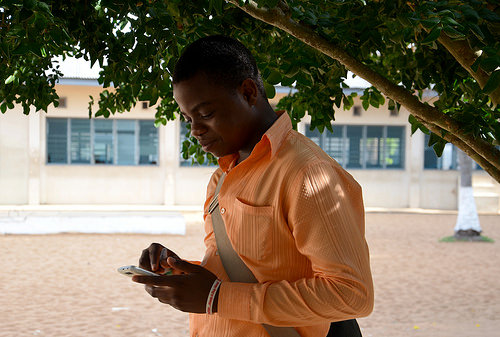Photo Credit: ZICTA / michael pollak via Compfight cc
Last weekend, Benin Republic became the latest African country to shut down its Internet following an execution of a government order.
As Benin prepared for parliamentary elections on April 28th of 2019, the general feeling among its citizens wasn’t so bright as a result of the shut down.
What started as an hour of Internet shutdown continued into a seven-hour social media shutdown and then progressed to a full-blown 24-hour outage of both electricity and Internet.
During the time in question, International platforms like Netblocks.org, which monitors cybersecurity and governance of the Internet, reported that major telecoms providers, including the likes of MTN and Moov, had their Internet connection cut off.
Confirmed: All major internet providers now disconnected in #Benin on day of scheduled parliamentary elections; incident ongoing #BeninShutdown #KeepItOnhttps://t.co/Y94ipLiLsv pic.twitter.com/a5kfChnJvL
— NetBlocks (@netblocks) April 28, 2019
The (un)intended consequences of this political decision include the effective silencing of human rights defenders, journalists and bloggers who are monitoring contested parliamentary elections.
And as a result, the actions of Benin government was strongly condemned.
By the time the Benin government revoked its decision, chaos had struck very deep and one space the rot would have mostly affected is the technology scene.
A fledgling ecosystem
Cotonou, Benin’s commercial capital city, is home to a growing number of young, enterprising individuals who make their living off the Internet.
In spite of the costly Internet, these young individuals have managed to tap into the global technology revolution and achieve remarkable feats. There is no doubt that any disruption of the Internet would have hit their operations badly.
David, founder of a local startup in Benin, says the government’s action was a huge step backward.
“That they went as far as cutting off electricity because of the elections was unimaginable. It kept me from working on my startup Happierco.”
Like him, many other young entrepreneurs who needed the Internet for tasks like updating their servers or simply passing messages across mediums like Slack and WhatsApp couldn’t as a result of the Internet shutdown.
For a country with a fledgling technology ecosystem, this does not only reduce local productivity and confidence but further reduce the global competitiveness of Benin.
Countries like Nigeria, Kenya and South Africa, have significantly more talent (quantity wise). The same could be said of the quality and quantity of venture funding.
If Benin is to ever bridge this gap, its government needs to understand the challenges faced by digital entrepreneurs in the country and should more than ever provide an enabling environment for them to thrive.
As expected, these entrepreneurs are back to their usual business and closing the gap of time lost to the Internet disruption.
However, uncertainty still looms though, as this was a only a legislative election. What happens when the presidential election comes by?
Which way for Africa?
It appears African governments are increasingly seeing the Internet as a threat. Since the beginning of the year, at least seven Internet shutdowns have been documented in Africa.
On the list are Chad, Democratic Republic of Congo, Gabon, Mali, Uganda, Algeria and Zimbabwe.
And where an outright shutdown hasn’t been enforced, African governments have adopted targeted surveillance and arbitrary legislation to silence digital users.
Tanzania’s government requires bloggers to pay an outrageous sum of $900 to license their website.
Similarly, the Ugandan government imposes a daily tax of Ush200 ($0.05) for use of social media platforms, instant messaging apps and other over-the-top (OTT) services.
More recently, the Algerian government disrupted access to the internet over citizen protests calling on President Abdelaziz Bouteflika to take a long overdue vacation from office.
In Nigeria, the need to censor what people are saying online has led President Muhammadu Buhari to decline assent to the Digital Rights and Freedom Bill.
But while African governments are obsessed with controlling what is being said online, historically their actions are not without consequences.
We see in the case of Uganda how it experienced a dip in revenue from OTT channels as well as a considerable decline in Internet subscriptions.
One month after a similar shutdown, the Zimbabwean government received a lawsuit from two advocacy groups in the country.
These few consequences go to show that nothing can justify social media or Internet shutdown, as they are a clear violation of the right to freedom of expression protected under article 19 of the International Covenant on Civil and Political Rights and article 9 of the African Charter on Human and Peoples’ Rights.
From an economy perspective also, Internet shutdowns are unfortunate and counterproductive for the economic progression of Africa.
As it is, African governments are sending a wrong signal to the rest of the world. But the big question is will they ever learn from their mistakes?











